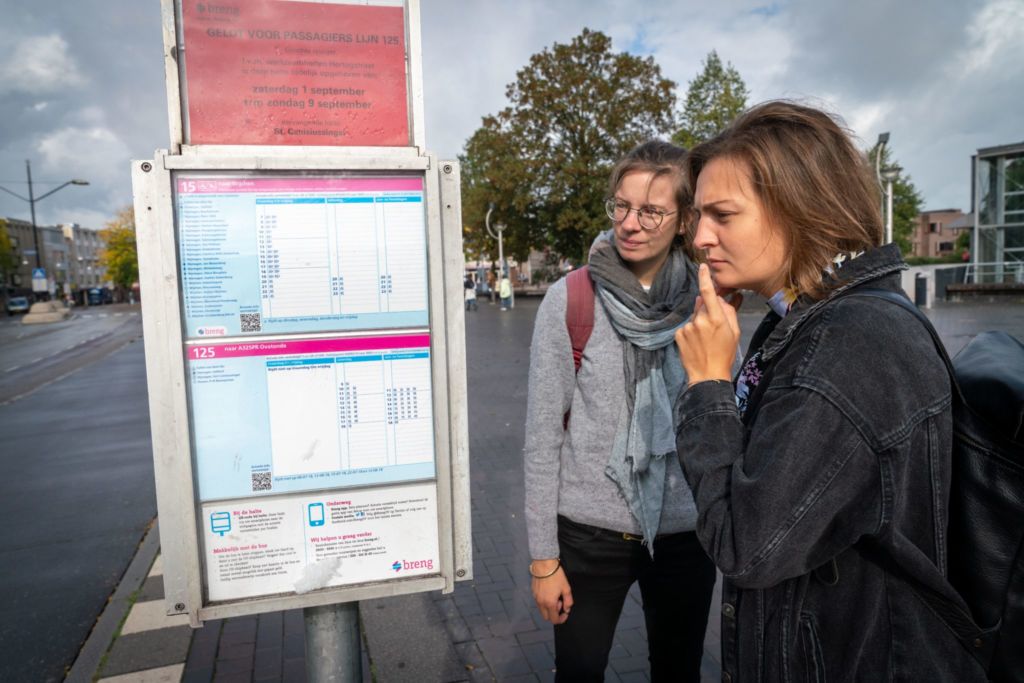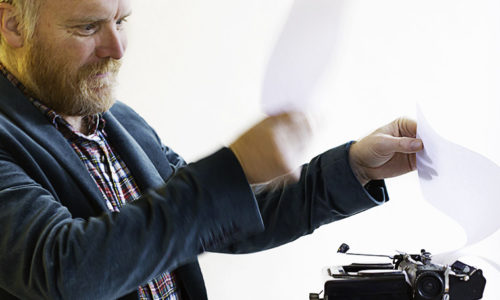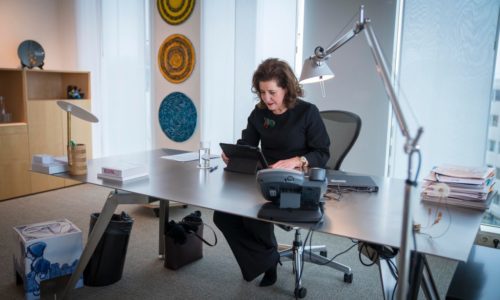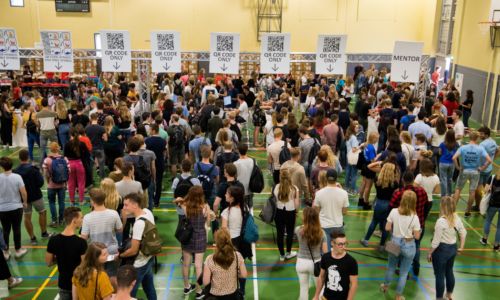The quest for a HEMA sausage
-
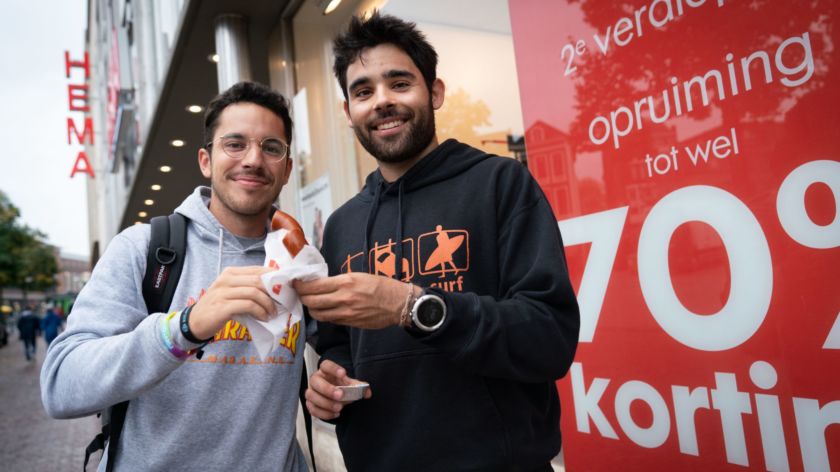 Ferran Sebastian and Sergi Prat. Photos: Erik van 't Hullenaar
Ferran Sebastian and Sergi Prat. Photos: Erik van 't Hullenaar
Is Nijmegen ready for so many internationals? Not quite, as apparent from a walk through the city with two Spaniards, a German, and a French student.
Take two young men from Barcelona and put them down in the cosmetics department of the Nijmegen HEMA store. They’re looking for sausage, having heard that this was a local delicacy. ‘Sorry, we don’t sell meat here,’ says the cosmetics lady in a motherly tone, ‘for that you really have to go to the supermarket.’ The two Spaniards look at each other. ‘You don’t sell any food here at all?’ asks Ferran Sebastian, with his grey hoody the more talkative of the two. In response the store clerk directs them to the food department at the back of the HEMA. Once there, Sebastian and his friend, Sergi Prat, ask another employee, who sends them back to the smoked sausage counter at the front entrance.
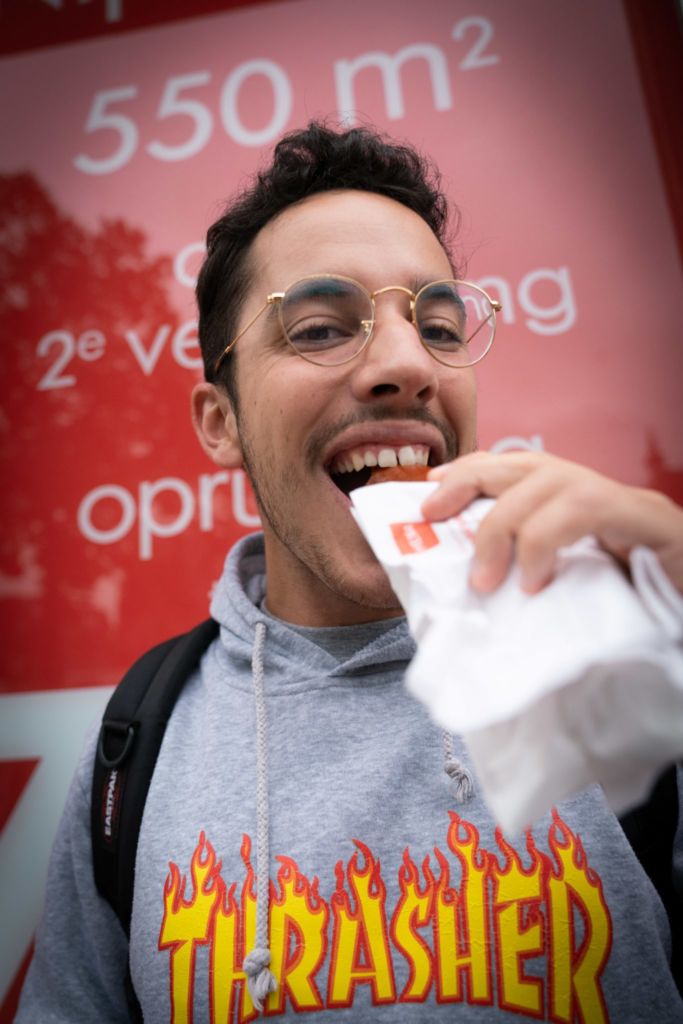
A young sales assistant with a brown pony tail listens to their order with a smile on her face. Like a true tour guide, she explains to her clients that smoked sausage is not a Nijmegen speciality, but a HEMA speciality, which can be bought all over the country. ‘What’s in it?’ asks Sebastian. Oh. The sales assistant briefly stares at her customers with big eyes. Then she resolutely cuts the sausage in two and shows the cross-section to the Spaniards. ‘Look,’ she says triumphantly, ‘That’s what’s in it.’ And: ‘Want to try a piece?’
Town Hall
Is Nijmegen ready for so many internationals? Vox decided to find out by taking four international students on a walk through the centre of Nijmegen. The students were given tasks to complete: Borrow a book by Hella Haasse from the city library. Or: apply for a citizen service number (BSN) at the Town Hall. Choose a movie playing at LUX and go and see it together. Or, as we’ve seen: Buy a smoked sausage at the HEMA. The first thing we immediately noticed: all the people approached by our guinea pigs speak remarkably good English. From the young HEMA sales assistant to the middle-aged librarian. Prat: ‘People’s English is much worse in Barcelona. When I first walked through the city, I was really surprised by how good it is here.’
And yet, it would be going too far to say that Nijmegen is ready to welcome a multitude of international visitors. Many facilities are not really accessible to foreigners, as apparent from a walk through the city centre with the four students. For example, information signs are usually only written in Dutch. And this leads to more problems than you might think.
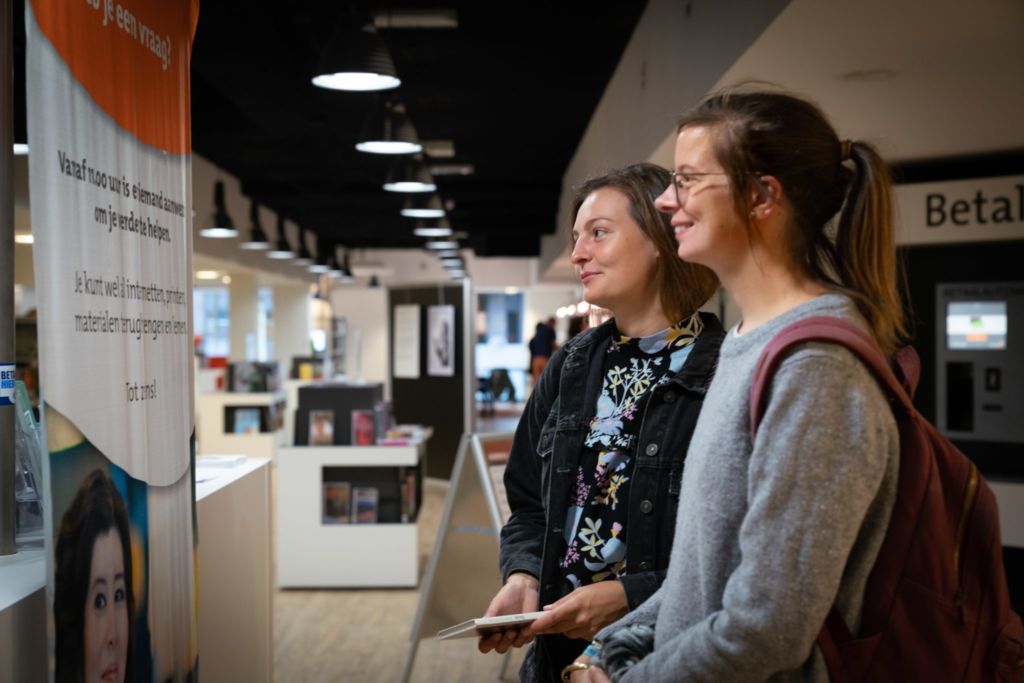
As the German Greta Soest browses through De Mariënburg library in search of a book by Hella Haasse, she happens to run into a library assistant. ‘A book by Hella Haasse? Yes, of course, just follow me.’ The book, entitled Oeroeg, is quickly found, but what next? The librarian is long gone. ‘I think I need a library card or something,’ says the student doubtfully. She looks around until she sees an information desk. Confidently, she goes up to it. She’s the only customer in sight, so this probably won’t take long. It’s early still, only 10.30 a.m. She waits 5 minutes. 8 minutes. 10 minutes. All this time, right next her, an information board states in Dutch: ‘One of our staff will be here to help you from 11 a.m. onwards.’
Appointment
One door further, at the Stadswinkel of the Municipality of Nijmegen, the entrance is flanked by two large white pillars with the words ‘Please register here’ in Dutch. Ferran Sebastian walks right past them. But he isn’t shy and accosts an employee in the hall. ‘You have to get a ticket over there,’ says the man in English as he gestures towards the white pillars. Clearly, he doesn’t trust the Spaniard to do this himself, since he walks in front of him and pulls out a ticket for him. Just as well, it turns out, as Sebastian would have had a hard time choosing between the two options in Dutch: ‘You have an appointment’ and ‘You don’t have an appointment’.
Then there’s the bus timetable. Manon Delestre, Master’s student from France, tries to find out when the bus leaves for Central Station. She squints at the information board at the Kelfkenbos bus stop. ‘What do you think this a and this e after the times mean?’ she wonders out loud. ‘And what’s the difference between these two itineraries?’ She asks for help from Greta Soest, who already understands a bit of Dutch. Together they peer at the timetable crowned by the words ‘alternative timetable’. ‘Hmm. What does that mean?’ Delestre asks the German student. ‘Out of order, maybe?’ the latter answers.
A little later Soest finds the answer. ‘It probably has something to do with Christmas or something.’ Delestre looks relieved. Now a bus ticket. ‘That’s all right. I’ll just buy one from the bus driver.’ Unfortunately, without an OV chip card, she won’t get far.
Menu
Yes, it can be hard sometimes, if you don’t speak Dutch, says Sebastian later as he and the other three students sit down for a chat at the café of the LUX cultural centre. ‘We like to go to café Faber on the Houtstraat, but they don’t have any menus in English. That makes it twice as hard: first someone has to translate the options for you, and then you still have to choose something.’ Soest chimes in that it would be great if restaurants and cafés had a few menus in English. ‘One or two would be enough. We can just pass them around.’
The four students agree that Nijmegen inhabitants make up for a lot of the problems they encounter. ‘People here are incredibly kind. So helpful. As soon as they see you looking lost, they come and help,’ says Delestre. The others nod. Sebastian: ‘I was with a friend at the AH XL. We were at the cash counter and had lots of shopping in our trolley. It turned out we couldn’t use our VISA card to pay. There we were, emptying all our pockets. We got out all the coins we had. As I looked behind me, I saw quite a queue had formed. I had expected to see angry faces, but people were just smiling in a friendly way, looking at us as if to say: ‘Take your time!’.’
All this to say that the four international students don’t mind so much not understanding all the information signs. ‘With such open and friendly people, it’s no trouble to ask for help,’ says Soest.
Still, the afternoon ends with a bit of a disappointment. It turns out the film they all want to see this weekend, Incredibles II, is screened on Sunday, but only in Dutch. The four peer at the Dutch LUX folder with film titles and times. Sebastian has an idea: ‘Of course, we could always skip the lecture and go see the English version on Monday morning.’
